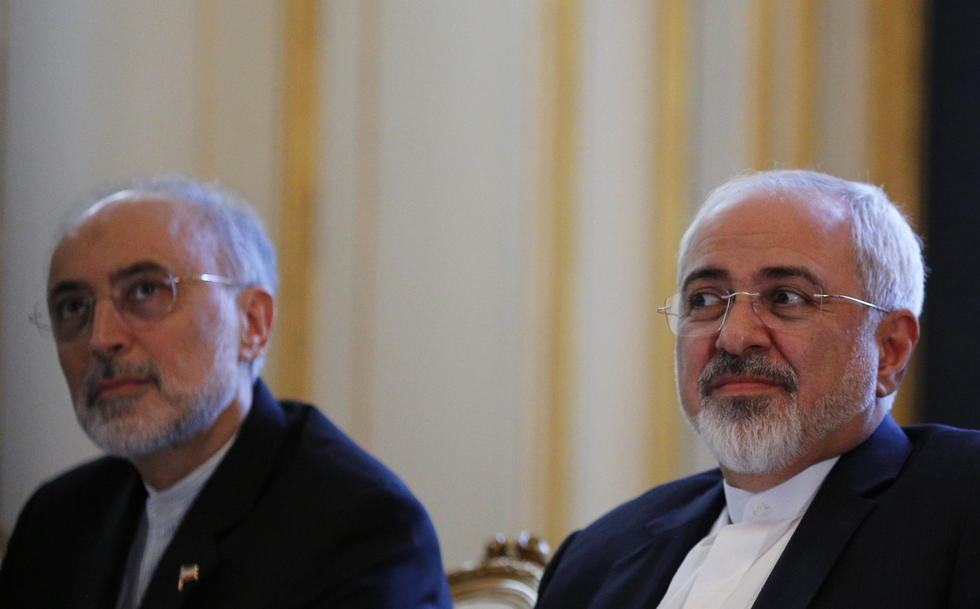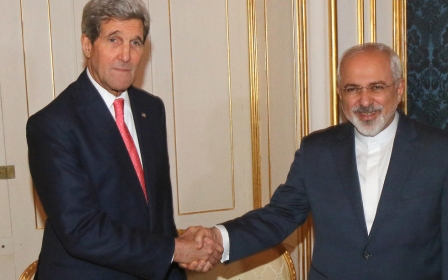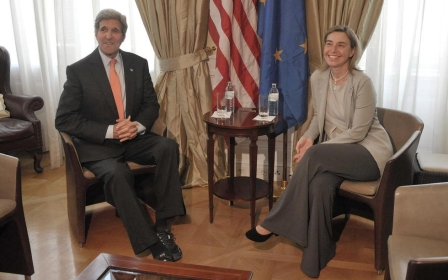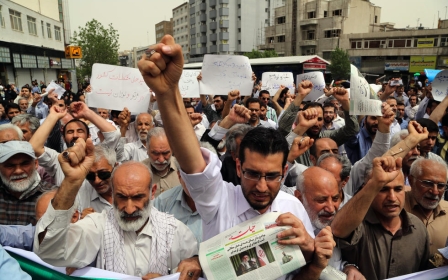Iran, US inching towards nuclear deal

By Jo Biddle and Siavosh Ghazi
Global powers appeared late Friday to be inching towards a historic nuclear deal as the Iranian foreign minister said the world had never been closer to ending a 13-year standoff with Tehran.
Iran's Mohammad Javad Zarif warned there was still "no guarantee" of success, but in a rare move offered the promise of greater cooperation to tackle other global problems, such as Islamic State militants, should the deal be sealed.
Global powers are trying to draw the curtain on almost two years of negotiations, which gathered new impetus after President Hassan Rouhani took power in late 2013.
The aim is to finalise a deal which would put a nuclear bomb beyond Iran's reach, in return for lifting a web of biting international sanctions slapped on the Islamic republic.
Speaking in English from the balcony of the Viennese hotel hosting the negotiations, Zarif said in a message posted on YouTube that at "this 11th hour despite some differences that remain, we have never been closer to a lasting outcome."
He stressed that "getting to yes requires the courage to compromise, the self-confidence to be flexible, the maturity to be reasonable."
But he said his country was ready to strike "a balanced and good deal" which could "open new horizons to address important common challenges".
"Our common threat today is the growing menace of violent extremism and outright barbarism," he said in a clear reference to the Islamic State (IS) group.
As Zarif met US Secretary of State John Kerry for fresh talks Friday, the top US diplomat praised "the genuine effort" being made by all sides.
Kerry insisted progress had been made despite "tough issues".
After missing several deadlines, the so-called P5+1 group - Britain, China, France, Germany, Russia and the United States - have now given themselves until Tuesday to conclude the deal.
A senior US administration official told reporters that some outstanding issues had been concluded in the past few days of burning "the midnight oil."
But he cautioned again "nothing is agreed until everything is agreed," saying "eventually this is going to have to come down to some significant political decisions that can only be made at the level of ministers."
Endgame nearing
With teams of experts working around the clock to resolve some of the thorniest issues - such as the extent and timing of sanctions relief, and how to win access to suspect Iranian nuclear sites - many of the ministers are due back in Vienna on Sunday.
"It feels like the end," said one western diplomat. "The technical work is advancing on the main text, on the appendices."
It will be up to the UN watchdog, the International Atomic Energy Agency (IAEA), to verify Iran is sticking to its side of the bargain through enhanced inspections of Iran's nuclear facilities.
But the P5+1 also want the IAEA to be able to visit sites where there is no declared nuclear material to probe alleged efforts, before 2003 and possibly since, to develop a nuclear weapon in secret.
On Thursday the IAEA chief Yukiya Amano visited Tehran to meet Rouhani, hoping to jumpstart a stalled probe into the so-called "possible military dimensions" of Iran's activities.
But after he returned, an IAEA statement suggested there had been no breakthrough.
"I believe that both sides have a better understanding on some ways forward, though more work will be needed," Amano said.
He briefed Kerry Friday about his trip, but US officials refused to discuss the substance of their talks.
New MEE newsletter: Jerusalem Dispatch
Sign up to get the latest insights and analysis on Israel-Palestine, alongside Turkey Unpacked and other MEE newsletters
Middle East Eye delivers independent and unrivalled coverage and analysis of the Middle East, North Africa and beyond. To learn more about republishing this content and the associated fees, please fill out this form. More about MEE can be found here.




